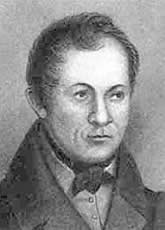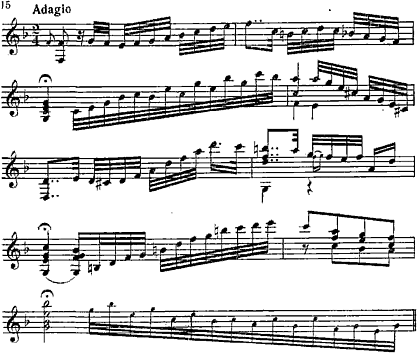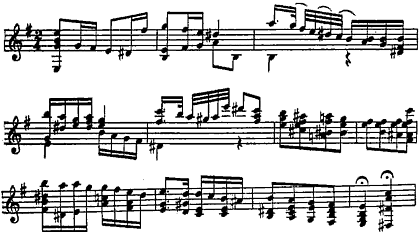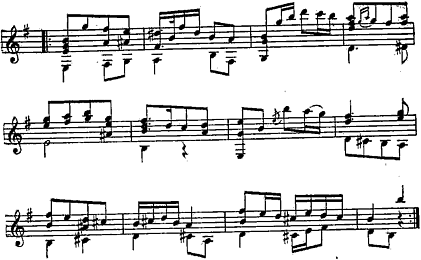 Literary critic A. Grigoriev guitarist named MT Vysotsky "nugget of genius". Perhaps, in this definition was of exaggeration scale activities Vysotsky, but those exceptional qualities that characterize this guitarist - singer and composer, he is obliged only to their natural talents. Neither general nor music education Vysotsky did not get, but with the first appearance in Moscow, he at once his guitar playing attracted attention, became a general favorite and soon strengthened for a the best guitarist. Literary critic A. Grigoriev guitarist named MT Vysotsky "nugget of genius". Perhaps, in this definition was of exaggeration scale activities Vysotsky, but those exceptional qualities that characterize this guitarist - singer and composer, he is obliged only to their natural talents. Neither general nor music education Vysotsky did not get, but with the first appearance in Moscow, he at once his guitar playing attracted attention, became a general favorite and soon strengthened for a the best guitarist.
Michael T. Vysotsky (1791-1837) was the son of a salesman in suburban estate poet M. Kheraskov. Intonational Russian folk songs and performing style have been acquired by him in his youth, when he lived in the village. Often visiting Kheraskov guitarist SN Aksenov noticed a boy with extraordinary musical talent. Aksenov explained to him the basics of music literacy and showed ways of playing a seven-string guitar. This, strictly speaking, limited musical education Vysotsky as random assaults Aksenov to Kheraskov, during which he listened to the young guitarist, not like a systematic training. Not many could give Vysotsky and student Aksenov guitarist Akimov, briefly replaced his teacher. All the successes in the guitar Vysotsky obliged only to his outstanding talent.
Around 1813 Vysotsky received his freedom and settled in Moscow. By this time he was so perfected the guitar that became known in the circles of the progressive youth, among poets and musicians, had driven him to the way a professional guitarist. Vysotsky began giving lessons na1gitare and composing pieces for this instrument.
Game Vysotsky caused delight of contemporaries melodiousness tone virtuosity and originality of the material implementation of Russian folk songs. Who later became his disciple M. Stakhovich leave a literary portrait Vysotsky and noted the nature of his performance: "Vysotsky was of medium height, more, however, to a high, rather than small, lean face, his brow was developed extremely musically - has its lithographic portrait. in manners he was modest and shy; like candor and good man talking at a loss, especially with people above him in rank, and he almost never played in concerts - could not play in front of the public. But in a small circle of acquaintances short when he was fond play of, or in one lesson with a student he make the other person, taking up the guitar, his face even takes a different expression: eyes and lips protruded eyebrows shireli, from a simple, always laughing expression of his face was getting strict expression, stamped and deep bold thoughts. Playing his guitar differed unprecedented power and classic tone evenness, and together boldness, speed, a special kind sincerity vibrations and legato, and extraordinary melodiousness, but would not go the corny melodiousness abuse or expression, rolling in declamation and classical processing evenness of tone without any tricks and ploys. that is why game left his extraordinary, truly musical experience. However, he could still play, and difficulties for him did not exist, which are a clear proof of his writings; and although fluency in the right hand and in specie roundness passages and thrillers Sichrow he conceded, but the forces in the chords he had more. Most importantly, what he hit in the game listener was his fantasy, which he called the chords, and I soon prelyudirovaniem call it; he just brought his trial to a height of almost preludien in the old sense of the word. So he prelyudiroval without any stretch all new revolutions, in the most magnificent passages and endless wealth of modulation and hour and two chords; His head was in this respect inexhaustible".
Freedom and ease of improvisation - that's what attracted primarily listeners in the game Vysotsky. Improvised at the time and many artists on stage, mainly pianists, this treasured tradition since the time of IS Bach, if not sooner. Improvisational moments were peculiar and Folk Performance and, who knows, maybe that this ability to improvise Vysotsky borrowed from folk singing and music-making items. To learn how to improvise on the guitar Vysotsky, can only be judged according to the memoirs of his contemporaries heard.
In the writings of Vysotsky display its exceptional freedom of operating with thematic material. This affected in inexhaustible variety of its variations on folk songs available wearing improvisational nature of the original "savers" and "endings" variational cycles. Such, for example, framing variations Vysotsky two Russian songs, published in 1830 and called them "Potpourri". Entry to this play is in the nature of free improvisation.

Possesses the same qualities as "ending" Variations on the song "bloomed TSVETIK", etc. As pointed contemporaries Vysotsky gravitated toward classical music - Bach, Haydn, Mozart, Beethoven. It was an instinctive reverence, self-taught guitarist before rich musical heritage of the great masters. Works of classical music, though in a rather limited number were known only by ear Vysotsky. Any other tool, but the guitar, he did not own theory was not so well educated to independently understand the complex work of the notes. His acquaintance with classical music Vysotsky was required to communicate with the outstanding pianist - composer John Field and A. Dubuc, a game which he has heard. Vysotsky visited and their lessons with students, listens to the pedagogical piano repertoire and even heard of something shifted on guitar (Kramer sketches, plays Gynt). Familiarity with these pianists expanded musical horizon Vysotsky. As pointed out by M. Stakhovich, Vysotsky many borrowed from Dubuque in the sense of studying "the musical rules" and his advice when composing guitar pieces. Enough, however, result in only a few dates to understand that in this regard the impact on creativity Vysotsky Dubuque could not be particularly significant. Vysotsky died in 1837, when Dubuc was only 25 years old. Therefore, in compositions Vysotsky help could be provided only in Dubuque last years guitarist, ie at a time when most of his works have been published.
However, from the fact of communicating these three musicians can make another conclusion. Vysotsky play guitar heard and Field, and Dubuque. Not whether as a result of the game was composed by Vysotsky Field Nocturne for Guitar, Flute, Oboe and Horn (or Bassoon)? Even more significant was, probably, the influence on the creativity of the game Vysotsky Dubuque. Excellent knowledge of Vysotsky Russian folklore, his guitar arrangements of folk songs and the skill of their execution could not affect the sense of democratization in Dubuque his own creativity. Great pianist and theorist, received his musical education under the guidance of Field's and raised on classical music samples, Dubuc was less than Vysotsky, well versed in the field of folk art. Since the late 30s, however, he makes a sharp turn in the direction of folk songs and domestic romance. At that time, created a large series of Dubuque Variations on Russian folk songs, made arrangements of gypsy songs, ballads and songs Alyabjeva, Varlamov, and other authors Gurilev domestic romance. As pointed out by VI Muzalevskii, " Dubuc made a valuable contribution to Russian music, outlining hundreds of Russian folk songs in the form of household fine -sounding piano miniatures, light in texture and easy to perform as ppofessionalov and amateurs," This desire to make folk art wide domain Muzalevskii believes merit Dubuque, not to mention the fact that being an excellent teacher, Dubuc trained in this area a large number of students from Mily Balakirev and ending with "musical grandson" - Sergei Rachmaninov.
If this is the merit of Dubuque in Russian pianism, then a similar role, but only a little earlier, and Vysotsky performed in guitar art. There is no doubt that it and other impacted environment, progressive era trends, etc., but the activity was Vysotsky to Dubuque family and living example of who could only follow that it was done with great musical and technical equipment.
Special admiration of music by JS caused Vysotsky Bach. She was known to him only by piano works heard in the performance of Field's, which is very appreciated and creativity Bach fugue played many of his heart. Vysotsky hit polyphonic mastery of Bach, the plexus of votes, which to some extent, he tried to implement in the guitar arrangements. Comparing the presentation of the theme song to the variations to the harmonization of Vysotsky songs other guitarists, it should be noted that in most cases, keeping the subject in the upper voice, Vysotsky was not satisfied with chordal accompaniment, and expounded it by at least two-voice. And he tried to apply the variations available for Guitar polyphonic techniques of presentation.
Variational cycles Vysotsky mostly small in size and limited to 4-5 variations. Each variation of it - self miniature. He did not seek, like Sichrow to use the entire volume of the guitar (" Rarely in the most difficult of his variations, he walked up the fourteenth fret, and that nearly one- Quinte". - M. Stakhovich), did not create a sense of fluency difficult passages, but staying within a fairly modest range, enriching theme underlings, her juicy garmonizuya. Richness of its completeness and created the impression among the audience of some special forces to extract the sound from the instrument, which was attributed to Vysotsky. Considerable importance was at this contrast. Almost organ sonority guitar Vysotsky overshadowing variations in which small fluttering passages durations on the top string only rarely supported or transparent bass chords. In addition, he often spent the subject in the lower voice, applied simulation endured theme from one voice to another. The first Russian guitarists Vysotsky began to apply the pedal point. Placing it in the upper register and applying tremolo he anticipated the welcome effect of which is so often used later by Spanish guitarists (Tarrega, etc.). With the most basic knowledge of harmony, it is not only the right to harmonize applying as other guitarists basic stages of major and minor, but also the diversity of the harmonic expression, often resorting to a seventh chord in a different location. Vysotsky and diverse rhythms. It is particularly fastidious in cases where Vysotsky used the slow pace.
In confirmation of this statement of the topic and give a small, improvisational, Vysotsky entry to variations on the song "I do not think (znala. - BV) for anything in the world to grieve" relating to 1830. In this play Vysotsky managed to penetrate deeply into the spirit of the song, send it wide raspevno without resorting to some external effects, satisfied only natural sonority of the guitar. Sparingly, but impressively bear league appropriate grace notes; and how a simple technique - jump an octave in music, without any support was the presentation ends Vysotsky singing songs ! It was impossible to " come up ". It could only do inspirational artist, deeply penetrated the intonation- modal features of the folk song, the former for his native element. Adagio:

Andante (Thema):

The best that was created Vysotsky - variations on native songs and perhaps no one after him could not lift guitar pieces of the genre to greater heights. Especially famous variations on his song "Strands, my spinner" and "I love pear garden". Composition and Vysotsky fantasies and variations on their own topics. They differ little from variations on folk songs, so they are riddled with songs, the spirit of folk music. Vysotsky responded to the events of 1812 march "On the flight from Moscow to the enemy". This, apparently, the first printed guitar play, with low literacy the musical presentation, Vysotsky was able to avoid all the same stamp. Music march sad (the memory of victims of the war), a short introduction imitates drumroll. Nobility and elegance of different little pieces Vysotsky dancing - waltzes, mazurkas, Ecossaises.
Vysotsky composed pieces for solo guitar. Oginski Polonaise and the song "All the flowers Bole" - only works, written for two guitars. And if Sichrow wrote duets for conventional seven-string and tierce - quart or guitar, the guitar - quart Vysotsky did not apply, preferring to Connect two ordinary.
For their treatments Vysotsky often took too artistically valuable works. This affected the lack of education, and only casual acquaintance with the art of music samples. Instead, he took the fancy theme, he created based on her own play, retreating too far from the original from which to borrow. Just transcriptions for guitar music literature Vysotsky usually not engaged. Borrowed themes were a pretext, as a starting point to create their own plays. These include several essays on topics guitarist and composer F. Sora.
In the papers, which mentions Vysotsky, said about the competition took place in the guitar Vysotsky with Sor, in which Russian guitarist was the winner. The basis for this was testimony to Stakhovich M., who wrote: "I heard the anecdote that while Vysotsky was in glory in Moscow, arrived in Moscow on a French ballet six-string guitar, played a livre ouvert with piano music anything. He wanted hear Vysotsky, has been arranged for this evening. Vysotsky was, as always, a timid, awkward, sitting somewhere in the corner and did not want to play first. Frenchman played something big and shiny, and then directly to the piano legs to play hard play. Thereafter asked to play Vysotsky. Vysotsky began to try the guitar and thus the two and half hours left on some of their samples with such success that the Frenchman allegedly broke in despair about his six-string guitar piano, saying, " After this music, I do not dare more pick up the guitar".
By submitting this story, to hear from someone "anecdote" Stakhovich he doubted that it happened exactly as described. Doubted this and Dubuc, who heard this story from Stakhovich. However, he believed that the meeting with Vysotsky "Frenchman", ie, Sor, did take place, though, and probably had a different character.
Soar came to Moscow in winter 1823, is known as using European guitarist and composer. Meeting with Vysotsky Sora could not occur as a simple competition with one another guitarist. On the one hand - Sor highly educated foreigner, who was in a privileged position, on the other - a self-taught guitarist Russian, even did not qualify for recognition by fellow aristocrats. The likely outcome of their meeting: great impression made on Sora improvisation Vysotsky and, simultaneously, education, leisure reading from a sheet and name recognized by all of the composer could not impress Vysotsky. The best proof of his respect to this master guitar pieces are composed on the themes Vysotsky Sora.
Vysotsky in Moscow gave countless lessons. It was his daily bread, procuring of which he had to deal with, as other income opportunities he did not exist. To his pedagogical work Vysotsky treated rather casually, often skimped on the lessons not only cared little about any artistic education of their students, but even telling them about the initial theoretical knowledge. As an educator - he antithesis Sichrow, who liked his pedagogical work and pay attention to musical literacy students. Vysotsky taught to play guitar by ear, or, as they said, "with hands", forcing the student to follow the beat of tact for its execution. The basis of his method was the only show, and if students do well in his guitar playing, then that they were obliged only to their own understanding and listening to the game master. He played his disciples often and in large quantities, infecting them with his performance. Not having received a musical education, and self-taught learning to play, Vysotsky was unable to create their own performance school. Of all his many disciples known were very few, and it is actually not about the art of playing the guitar, and the love of the folk song, absolutely inimitable transmit this bright and original talent. One of the disciples Vysotsky - MA Stakhovich - became a collector of folk songs and Russian historian seven-stringed guitar, the other - AA Winds, engaged in Vysotsky when he was a medical student at Moscow University - author of the book "100 Russian folk songs" and several variations on the Russian guitar songs.
Windy took lessons from Vysotsky, already being musically literate person. Even before the start of classes with Vysotsky he studied music theory in parallel with learning to play the violin. Besides, he studied singing and was very close to A. Varlamov number of romances which he shifted to a seven-stringed guitar. Winds was the favorite pupil Vysotsky. As pointed Stakhovich, Winds especially clearly manifested itself in prelyudirovanii, improvising on themes of folk songs. Stakhovich indicates that "a vigorous game, and smooth melody of legates, modulation and bold moves in chords - all of it came to him in a straight line from Vysotsky, but he still has a soft singing. His imagination and melodious themes have something charming for the listener, and this quality he will kill any opponent".
Mentioned Stakhovich Vysotsky also that other disciple, who dealt with him during his student days and later who got the lessons from Sichrow - IE Lyakhov. His playing and composing Stakhovich evaluates quite high. He writes: "His compositions are original and lively character capriccio; such, for example, it Vengerka which united all the whims of gypsy music in the play, has a lot of true musical merits. Moves his bass very peculiar and remind Vysotsky, roundness and fluency passages right hand prove correct and clear sihrinskoy study methods. Especially he is strong in the thriller, and fast passages it clean and distinct. said that he has attached to another guitar bass string or two, and the effect of the game on a guitar is very successful and original... I expect a lot from him on Liakhova direction for Russian Russian manners and ways of playing the guitar techniques that were part of Vysotsky, you know, for example, his variations on "Hello, dear", and "Let the young"; something this side, I think especially can develop Lyakhov, he can save us and effects torban old and forgotten balalaika, where we had the world's only artist Radivilova... Liakhov also perfectly transcribed to guitar famous romance Dubuque "Oh, frost, frost". I heard it before and before long since, when he was still alive Vysotsky, Liakhova in concert - two guitars. This concert was very successful. Its smooth and true in stroke play and perfect tone had worked out all the necessary virtues for a concert... I am sure that when it Sokolov game will have a proper success".
Hopes placed on it Liakhov not justified. His concerts with guitarists (Belosheinym later with Golikov) were accidental. By profession he was a veterinarian and served in various departments until 1872, when he retired. According to information reported by VA Rusanov, Lyakhov was very limited and musician died in 1883, 70 years of age.
Vysotsky students can be considered as the best leaders of gypsy guitarists choirs (Sokolov et al.) They came to Vysotsky and listening to them pursuant to Russian songs emulated his style of play and extended their song repertoire. Gypsies Vysotsky enjoyed great musical authority.
Communicating with people like Stakhovich, wind, Delvig (he was one of the first students Vysotsky), advanced students, outstanding literary contemporaries,
artists and musicians had a positive influence on the development of talent Vysotsky. Impact it still could not withstand him another environment also admirers of his talent, but not enough cultural people who are accustomed to look at music as a cheerful companion, and sometimes drunken pastime. Moscow merchants, among which Vysotsky often had to visit and play the guitar, it systematically solder. Leading Russian bohemian life, Vysotsky ruined his talent. He died in 1837, greatly lacking. It tells M. Stakhovich in the last years of his life, owed the landlord rent, Vysotsky sat at the open window and played guitar students gathered in the courtyard, whose donations and supported himself for some time.
Vysotsky creative heritage is very large. "Complete Collection" of his guitar works, then listing the 50s F. Stellovsky publishing firm in the amount of 84 rooms, far from exhausting the fact that they were created as indicates VA Rusanov, many works have been published by some Vysotsky Alexeyev, student and householder remarkable guitarist. After the death of Vysotsky between his family and the publisher are misunderstandings on the basis of cash payments, led to litigation. Which ran for about 15 years trial ended in favor of the family Vysotsky, but by the time the publisher was not already dead.
"Vysotsky later writings published many publishers, but accurate records do not exist. Among the works Vysotsky there is a small (24 pages), "Theoretical and practical school of guitar playing", which was published shortly before the author's death at the insistence of the publisher. VA Rusanov characterizes it as "hasty, sketched work". In the School of the value specified for students solfege guitarists are some information on musical literacy, states of ten guitar and provides "Explanation semicircle" (reception 8 legato and more music without the help of the right hand). Not being a teacher who loved his job, not created Vysotsky and valuable tool kit. School for his guitar is not even historical value.
Expertise Vysotsky most vividly recorded in his song variations. The best vintage and modern Russian songs Vysotsky got in his interpretation of such a map, what is not found even in the works while living with them much stronger technically and musically literate composers. Guitarist - songwriter self-taught in this area proved a consummate master.
Best Executive Vysotsky monument - dedicated his poem "The Sound" (1830) by Mikhail Lermontov, a fervent devotee of games Vysotsky, and according to some, and his disciple:
What a sound! Heed stationary
o sweet sound I;
Remember forever, heaven, earth,
Itself.
Almighty! What a sound! greedily
Heart catches them,
As a traveler in the desert desolate
A drop of water alive!
And in my heart they give birth again
Dreams hilarious years
And life in clothes dress
All that is no more.
Take way these sounds.
Image, dear to me;
Mnitsya, hear the quiet weeping of separation,
And the soul is on fire.
And again revel in madly
Poison of the old days,
And again I thought rely
The words of the people.
Poem "Sounds" written by Mikhail Lermontov, when he was 16 years old. In the autumn of 1830 he entered the University of Moscow, but classes, because of the cholera epidemic began only in January 1831. Students, Lermontov was free from occupation. Apparently, by this time, and should include a meeting with Vysotsky.
During the life of Vysotsky autograph these early poems inspired Lermontov was lost. First published in "Saratov sheet" (1875, № 256), the poem "Sounds" reprinted in all the collected works of Lermontov without initiation. Only in Soviet times, a careful study of the creative heritage of the great Russian poet was forced to recall the humble musician, guitarist, they glorified.
|



